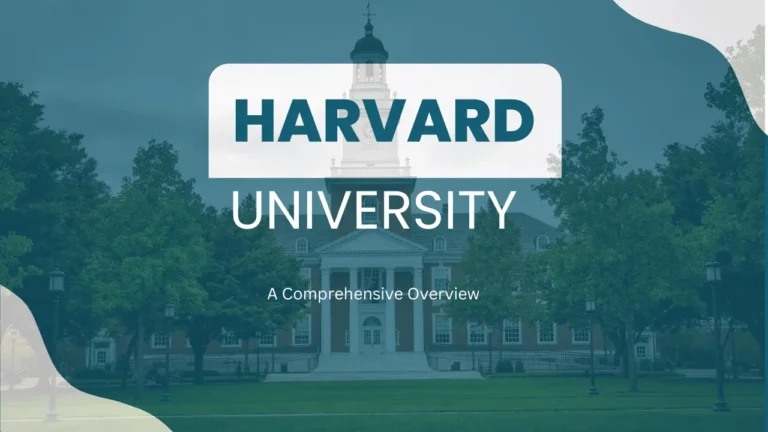Oxford University: A Timeless Institution of Academic Excellence
The Oxford University, located in Oxford, England, is one of the oldest and most prestigious universities in the world . Founded in 1096, Oxford has been at the forefront of education, research, and intellectual discovery for nearly a millennium. The university’s rich history, distinguished faculty, and global influence make it a dream destination for students, scholars, and researchers from around the globe. This article delves into the many facets of Oxford University, exploring its history, academic offerings, campus life, and its impact on the world.
A Glimpse into Oxford’s History
Oxford’s origins can be traced back to the 11th century, making it the oldest university in the English-speaking world. It grew rapidly in the 12th and 13th centuries, becoming a significant center for learning and intellectual debate. The university’s early focus was on theology, law, and medicine, disciplines that continue to be strong at Oxford today.
In the 13th century, the university saw the establishment of its first colleges, including Balliol College and Merton College. These colleges were initially founded to provide accommodation and support for students, but they quickly became integral to the university’s academic structure. Over the centuries, Oxford expanded its academic offerings, embracing the humanities, sciences, and social sciences.
Academic Excellence and Global Influence
Oxford University is renowned for its rigorous academic programs, world-class faculty, and groundbreaking research. It offers a diverse range of undergraduate and postgraduate courses across various disciplines, from the arts and humanities to the sciences and social sciences.
Key Academic Features:
- Tutorial System: One of the most distinctive features of an Oxford education is the tutorial system. This system pairs students with tutors for regular, intensive one-on-one or small group sessions. Tutorials provide personalized attention, encourage deep intellectual engagement, and foster critical thinking skills.
- Collegiate Structure: Oxford is composed of 39 autonomous colleges and six permanent private halls, each with its own unique history, culture, and community. Students apply to a specific college and spend much of their academic and social life there, but they also benefit from the broader resources of the university.
- Research Excellence: Oxford is a leader in research across a wide array of disciplines. It has produced numerous Nobel laureates, Fields Medalists, and other notable scholars. The university is home to state-of-the-art laboratories, libraries, and research centers that contribute to advancements in fields such as medicine, physics, economics, and more.
- Global Collaborations: Oxford has a strong tradition of international collaboration. It works with institutions, governments, and organizations around the world on research projects, educational initiatives, and cultural exchanges. Oxford’s influence extends far beyond the UK, making it a global hub of learning and innovation.
Student Life at Oxford
Oxford offers a vibrant and enriching student experience that extends beyond the classroom. The university’s historic setting, coupled with a diverse and active student body, creates a unique environment for personal and intellectual growth.
Key Aspects of Student Life:
- Extracurricular Activities: Oxford students have access to a wide range of extracurricular activities, from sports and music to drama and debate. The university has over 400 clubs and societies, catering to almost every interest. The Oxford Union, for example, is one of the most famous debating societies in the world, hosting debates with global figures in politics, entertainment, and academia.
- Cultural and Historical Richness: The city of Oxford is steeped in history and culture. Students can explore the university’s many museums, such as the Ashmolean Museum and the Museum of Natural History, or attend lectures and events hosted by renowned scholars and public figures.
- Global Community: Oxford is home to a diverse student body, with students from over 150 countries. This international atmosphere fosters cross-cultural exchange and broadens students’ perspectives on global issues.
- College Life: Each college at Oxford has its own unique traditions, dining halls, libraries, and social events. College life is central to the Oxford experience, providing a close-knit community within the larger university setting.
Oxford’s Impact on the World
Oxford University has played a significant role in shaping the world, producing a remarkable array of leaders, thinkers, and innovators. Its alumni include 28 British prime ministers, dozens of foreign heads of state, and numerous leaders in science, literature, business, and the arts.
Key Contributions:
- Political Leadership: Oxford has educated a significant number of political leaders, including notable figures such as Margaret Thatcher, Tony Blair, and Bill Clinton. The university’s influence on global politics is profound, with many of its alumni holding key positions in governments around the world.
- Scientific Advancements: Oxford researchers have been at the forefront of many scientific breakthroughs. For example, the university played a crucial role in the development of the Oxford-AstraZeneca COVID-19 vaccine, which has been distributed worldwide.
- Literary and Cultural Influence: Oxford has a rich literary tradition, with alumni including writers such as J.R.R. Tolkien, C.S. Lewis, and Lewis Carroll. The university’s impact on literature, philosophy, and the arts continues to be significant, with its scholars contributing to the global cultural landscape.
Admissions and Scholarships
Oxford University is highly selective, attracting the best and brightest students from around the world. The admissions process is rigorous, requiring strong academic performance, well-rounded extracurricular activities, and a deep passion for the chosen field of study.
Key Admissions Features:
- Undergraduate Admissions: Applicants typically need to achieve high grades in relevant subjects and may be required to take entrance exams or submit written work. Interviews are a crucial part of the selection process, where candidates discuss their academic interests and potential with faculty members.
- Graduate Admissions: Graduate programs at Oxford are equally competitive, with applicants needing a strong academic background and often relevant professional experience. Research proposals, references, and interviews are key components of the application process.
- Scholarships and Financial Aid: Oxford offers various scholarships to support international students, including the Clarendon Fund, Rhodes Scholarships, and Reach Oxford Scholarships. These scholarships can cover tuition, living expenses, and other costs, making an Oxford education more accessible to talented students from all backgrounds.
Conclusion
The University of Oxford stands as a beacon of academic excellence, intellectual rigor, and global influence. Its rich history, innovative teaching methods, and commitment to research make it one of the most sought-after educational institutions in the world. For those fortunate enough to study at Oxford, the experience is transformative, opening doors to unparalleled opportunities and shaping the leaders, thinkers, and innovators of tomorrow. An education at Oxford is not just about acquiring knowledge—it’s about becoming part of a legacy that continues to shape the world in profound ways.



